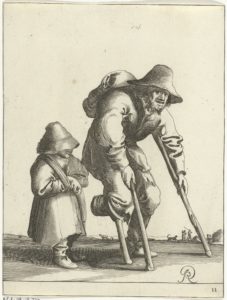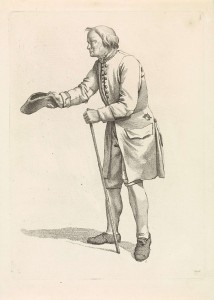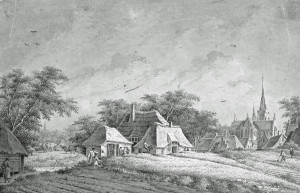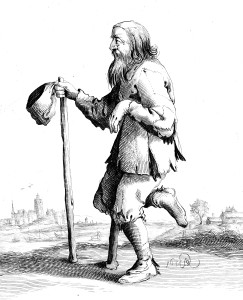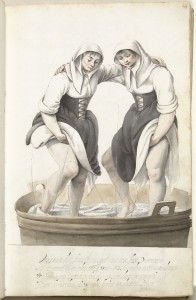Armenzorg means "care for the poor." You can often find it as a topic in finding aids. See poor relief in the Netherlands in the 1600s for background information about this subject. … [Read more...]
Poor relief in the Netherlands in the 1600s
In the 1600s, poor relief was a local affair. There was no national social security system. Larger cities had poor masters who administered a fund to support the poor residents of the city. In the countryside and smaller cities, the deacons of the protestant church had the responsibility to aid people in need. Even people who did not belong to the church were supported. People who were unable to work because of illness, age, or disability received charity. The income of the poor relief … [Read more...]
Quick tip – Use bond letters to find out where your ancestor came from
If you can't find a Dutch ancestor from the 1700s, it could be that they originally came from elsewhere. At that time, you had to provide a bond letter (borgbrief or akte van indemniteit) from your previous place of residence before you could settle elsewhere. This letter assured the new town that you would not be a burden to them, because the old town agreed to take care of you if you were unable to support yourself. They are a wonderful source of information about migrations. Read more … [Read more...]
Source: Borgbrief (Bond letter)
Before the mid 1800s, if you wanted to move to a new place, you had to provide proof that you would not be a liability to the town. You would be required to submit a bond letter to the authorities, wherein the poor administration or civil authorities of your previous town declared that they would take care of you if you became poor. These letters were called "borgbrieven" [bond letters] or "akte van indemniteit" [record of indemnity] and can be a wonderful source of information about migration … [Read more...]
Dutch term – Landloper
A landloper was literally a "land walker," a vagrant who roamed the countryside. Vagrancy used to be a crime, and vagrants could be incarcerated or banned. Some regions employed special "armenjagers" [pauper hunters] to drive them away. … [Read more...]
Dutch term – Wasvrouw
A wasvrouw was a laundress. It was an occupation for poor women, who were usually single or widowed. … [Read more...]
